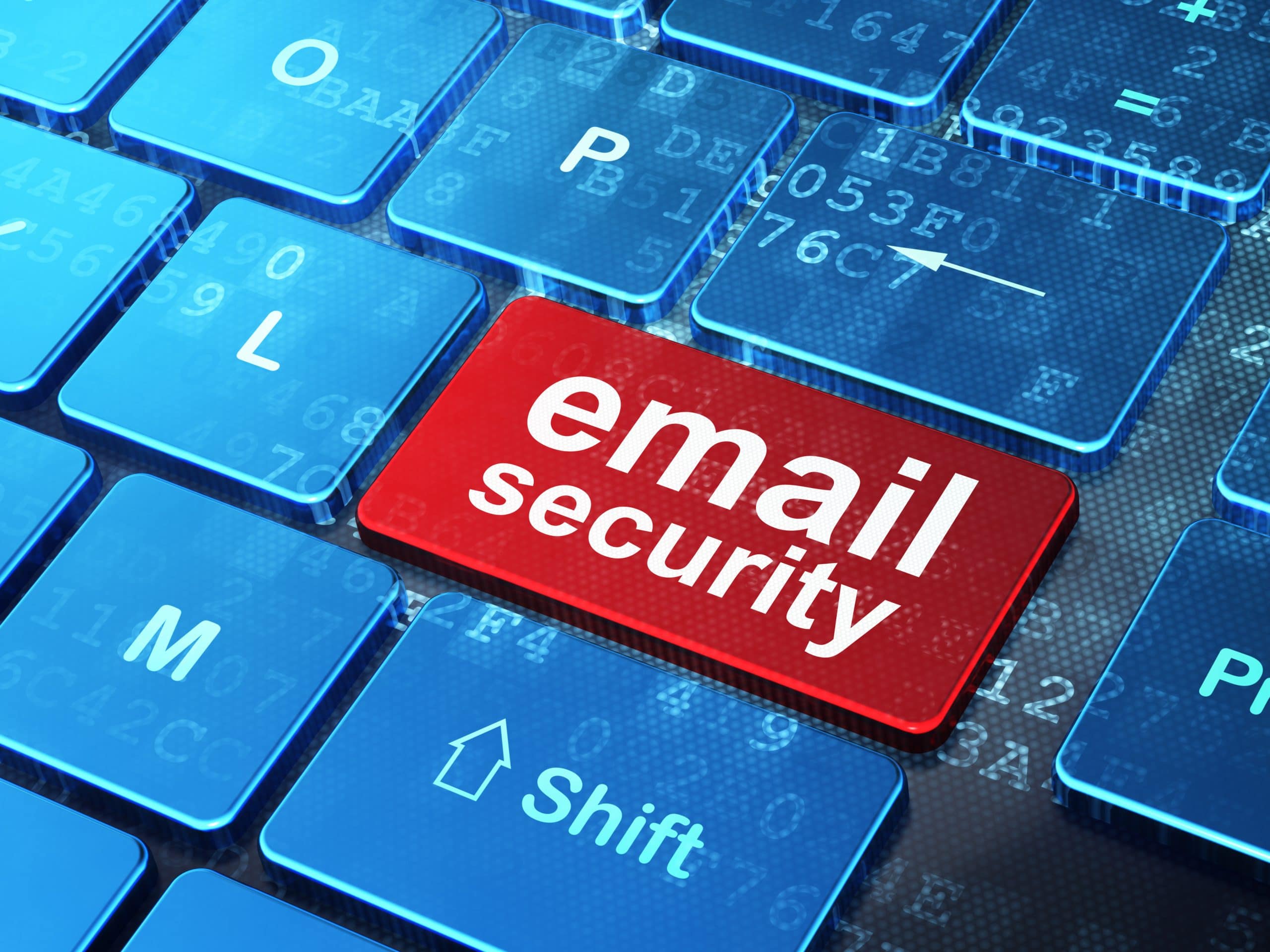Email encryption is a method that converts data that is readable into something that is not readable in the hope of preserving the privacy of the data. If used in conjunction with HIPAA security measures, email encryption could assist in protecting the privacy and security of PHI (Protected Health Information). This article will explain how to utilize email encryption to achieve HIPAA compliance by covering its fundamentals. We’ll also provide a list of HIPAA-compliant email providers to compare.
Email Encryption to Achieve HIPAA Compliance
Here are some ways that you can utilize encryption in the email to ensure HIPAA compliance:
- Use popular and HIPAA-compliant email services that secure messages in transit and at rest.
- Ensure that you secure the message using high-level encryption techniques, such as obtaining HIPAA certification.
- Limit access to the individuals who can receive and send emails that contain PHI.
- Limit access to audit logs to stop unauthorized access to PHI.
- Allow two-factor authentication to provide more security.
- Inform staff about HIPAA compliance guidelines and procedures, email compliance, and email rules, such as encryption for emails and secure web and online forms.
Following HIPAA guidelines regarding email compliance and rules and these additional steps will ensure PHI transmitted via email stays private and secure. HIPAA-compliant secure email services provide the required tools and features to ensure your PHI is protected and kept safe when sent via email.
The HIPAA Compliance Checklist
HIPAA compliance requires companies to follow the best practices in managing PHI. The HIPAA Compliance Checklist can help ensure that all HIPAA obligations are met and that PHI is secured.
Here’s a list of technical safeguards for HIPAA Compliance:
- Implement physical, administrative, and technological safeguards to safeguard the privacy and security of PHI.
- Create HIPAA guidelines and procedures to ensure conformity with HIPAA regulations regarding email communications.
- Train staff on HIPAA policies, procedures, and security guidelines.
- Use access control measures to restrict who has access to PHI.
- Secure email encryption is recommended for all email accounts that contain PHI.
- Check systems for any unauthorized access to or use of PHI.
- Set up audit controls to track and record HIPAA-related activity.
- Update regularly HIPAA policies, procedures, guidelines, and security.
- Ensure HIPAA Compliance is maintained by conducting periodic audits and risk assessments.
- Create an email notification for breach of procedure system to notify via email reports of any unauthorized access to or disclosure of PHI.
What are the HIPAA-compliant email providers?
HIPAA-compliant email service providers include those that satisfy the specifications of HIPAA to protect the privacy and security of PHI. These providers offer security features (email encryption software) like encryption in transit, in-the-middle users’ authentication, granular audit trails, and access control to safeguard against unauthorized access.
There are several HIPAA-compliant email service providers available, including:
- Microsoft Office 365 HIPAA/HITECH-compliant plans
- Google G Suite HIPAA or Google Workspace/HITECH-compliant plans
- Proof point HIPAA Compliant Email Services and Encryption
- Six HIPAA Compliant Email Services and File Encryption
- Iron Core HIPAA Compliant Email Service and File Encryption
With these HIPAA-compliant email and email archiving service providers, you can be sure that all personal health information is secure and encrypted when sent via email. You can sign-up for a 30-day free trial with these popular email applications before choosing which email platform suits you best.
Having HIPAA-Compliant Secure Email Providers Is Only A Part Of HIPAA Compliance
HIPAA-compliant email service is only one aspect of HIPAA compliance. HIPAA stipulates that all PHI is kept safe and protected throughout the day. Alongside HIPAA-compliant secure email services, companies must also have guidelines and policies that ensure the privacy and security of email content, especially that of PHI. This includes access control, user authentication, data backup, and disaster recovery procedures. HIPAA also requires companies to perform regular HIPAA risk assessments to determine any vulnerabilities that could be present within their systems.
What is PHI? And why is it essential to secure it?
PHI refers to any protected health information that could be used to identify the patient. Additionally, HIPAA stipulates that all PHI must be secured and private, and encryption of emails is among the most efficient methods to ensure this.
Utilizing HIPAA-compliant email services and encryption techniques, you can ensure your personal information is safe in transit and storage. This ensures the fullest extent of HIPAA compliance standards is met and PHI is kept secure and private.
How does PHI get encrypted during the entire process?
HIPAA-compliant email services use different encryption methods to add an extra layer of security to ensure the privacy and security of PHI.It is used during transit (i.e., while data moves between computers) and at rest (i.e. when saved on different storage devices).
Encryption In Transit
The process of encryption in transit can be described as the act of encryption data as it is moved from one system to the next. This ensures that any PHI sent from one email address to other email recipients remains safe while traveling across networks. HIPAA-compliant secure email services use encryption methods, such as TLS (Transport Layer Security) and SSL (Secure Socket Layer), to safeguard PHI during transport.
Encryption At Rest
“Encryption at rest” refers to the process stored on storage devices or email archives, such as computers. HIPAA-compliant secure email services use various encryption methods like AES 256-Bit Encryption (Advanced Security Standard for Encryption) and PGP (Pretty Good Privacy) to safeguard the privacy of PHI while it is in storage or email archiving.
Who is covered by HIPAA?
Per HIPAA, “Covered Entities” must comply with HIPAA compliance requirements for handling PHI and observing transmission security. The covered entities include:
- Healthcare Industry and Healthcare Organizations
- Healthcare professionals (e.g., hospitals and physicians)
- Health plans (e.g., insurance companies as well as HMOs)
- Associate business (e.g., suppliers who provide solutions to entities covered)
- Any company that handles PHI is a Covered Entity and must comply with HIPAA regulations.
This means using HIPAA-compliant secure email services for all addresses communicating PHI. It also includes implementing encryption techniques to ensure the privacy and security of all PHI.
How can an entity violate HIPAA?
HIPAA considers any unauthorized access to or disclosure of PHI a violation. HIPAA-compliant secure email services are designed to prevent such breaches by encrypting data during transit and storage.
Examples of HIPAA violations are:
- Sending unencrypted emails containing PHI
- Use of unencrypted email addresses in transmitting PHI
- People store unencrypted PHI on storage devices such as computers or devices
- Unauthorized use of secure email addresses and access to PHI
The consequences of these violations could be penalties, fines, and even criminal charges for both organizations and individuals. When you utilize HIPAA-compliant secure email services, you can ensure your private information is kept secure and protected throughout the day.
Penalties For HIPAA Non-Compliance
The penalties for violating HIPAA could be very extreme. HIPAA violations could result in criminal and civil penalties, including as high as $1.5 million in fines for each instance. Additionally, HIPAA regulations may oblige organizations to offer breach notification services for affected patients, which could be costly and long-winded.
IT Support’s Role In HIPAA Compliance
IT support plays a crucial role in ensuring HIPAA compliance by implementing HIPAA-compliant email services, encryption techniques, and additional security methods following the business associate agreement. Professionals assist businesses in adhering to HIPAA standards to protect the security of PHI.
Additionally, they can offer guidelines on using HIPAA-compliant secure email services to secure emails containing PHI and guarantee HIPAA compliance. Including IT support is essential for HIPAA compliance.
WheelHouse IT provides HIPAA-compliant email solutions to help companies achieve HIPAA regulations and safeguard their personal information. We provide various solutions, such as email encryption access control, encryption, and loss prevention for data to ensure that PHI remains safe and secure throughout the day in compliance with the business associate agreement.
WheelHouse IT As Your Partner In HIPAA Compliance
WheelHouse IT provides HIPAA-compliant email services and encryption solutions to businesses that require a safe method of sending, receiving, and saving PHI while respecting the business associate agreement. We employ the most recent encryption techniques, including TLS and SSL for emails in transit, AES 256-bit encryption, and PGP for data at rest. Additionally, we ensure HIPAA conformity requirements are met by taking extra steps.
The services we offer include the following:
- HIPAA-compliant email encryption
- Controlling access and authentication
- Data loss prevention
- Secure storage of PHI under the business associate agreement
- Support and maintenance of HIPAA compliance
We also provide consulting and training services that help businesses understand HIPAA regulations, use HIPAA-compliant email services, and ensure HIPAA compliance.
Contact us for more details about HIPAA-compliant email solutions from WheelHouse IT. We can help you attain HIPAA compliance and also ensure the privacy and security that you have of your PHI.
We look forward to working with you throughout the HIPAA conformance journey!











